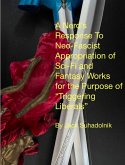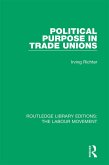In "The Purpose of History," Frederick James Eugene Woodbridge presents a philosophical exploration of historical consciousness, focusing on the interplay between human agency and the larger forces that shape our understanding of the past. Woodbridge employs a nuanced literary style, blending rigorous philosophical inquiry with accessible prose, making complex ideas about time, memory, and meaning approachable to a wide audience. Set against the backdrop of early 20th-century American thought, the text engages deeply with the works of prominent historians and philosophers, articulating a vision of history that emphasizes continuity, purpose, and the lessons we derive from our collective experiences. Woodbridge, a distinguished American philosopher and educator, was a key figure in the development of pragmatism and the philosophy of history. His academic environment, steeped in the overlapping disciplines of philosophy, history, and literature, undeniably influenced his exploration of historical purpose. Through his scholarly pursuits, Woodbridge sought to illuminate the relationship between past events and contemporary existential dilemmas, crafting a work that reflects his own intellectual journey and the pressing questions of his time. This book is a compelling read for historians, philosophers, and anyone interested in the deeper meanings embedded in our understanding of history. Woodbridge's insightful analysis not only challenges conventional narratives but also invites readers to reflect on how history, in its myriad forms, continues to shape our identity and inform our actions in the present.
Dieser Download kann aus rechtlichen Gründen nur mit Rechnungsadresse in A, B, BG, CY, CZ, D, DK, EW, FIN, F, GR, H, IRL, I, LT, L, LR, M, NL, PL, P, R, S, SLO, SK ausgeliefert werden.









